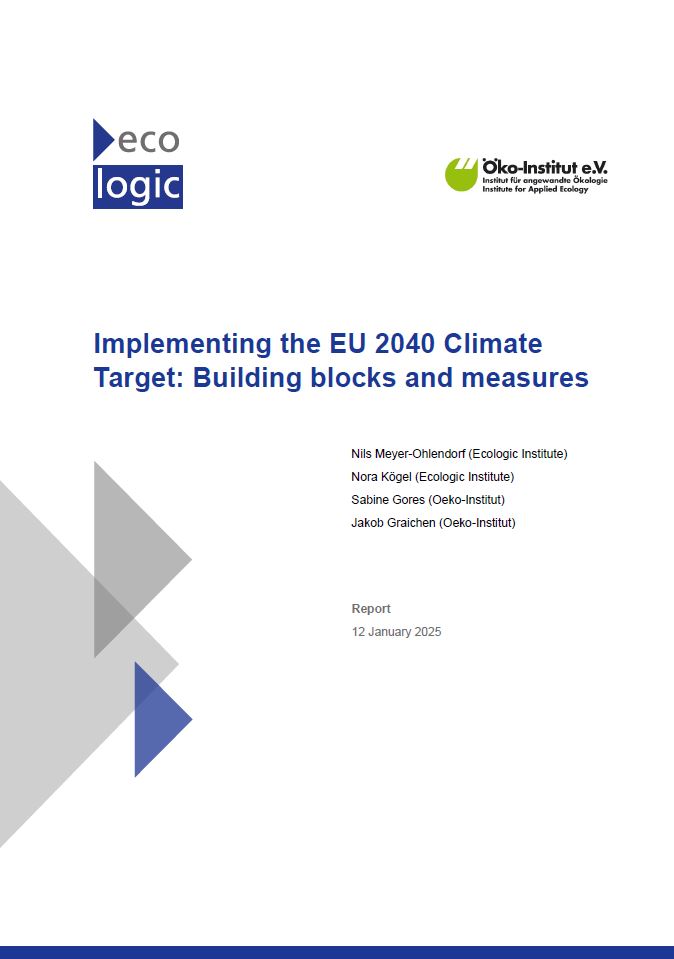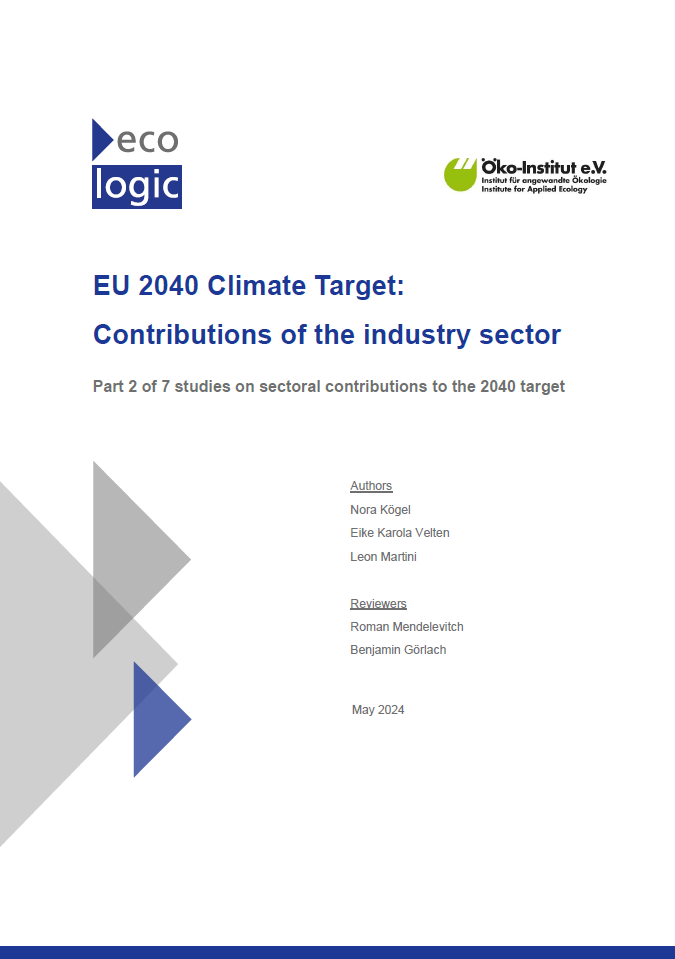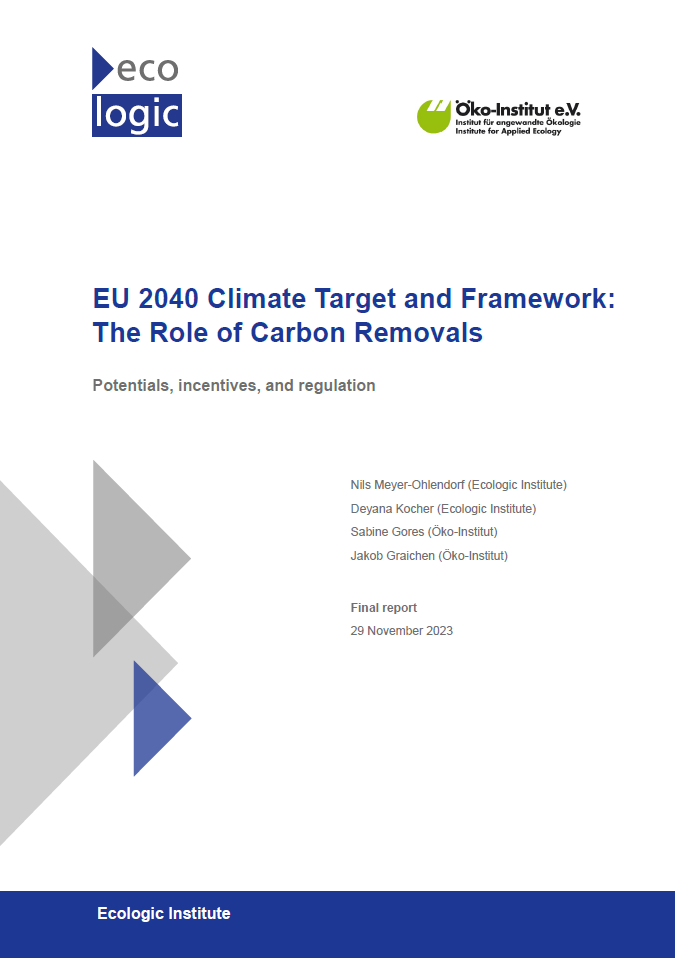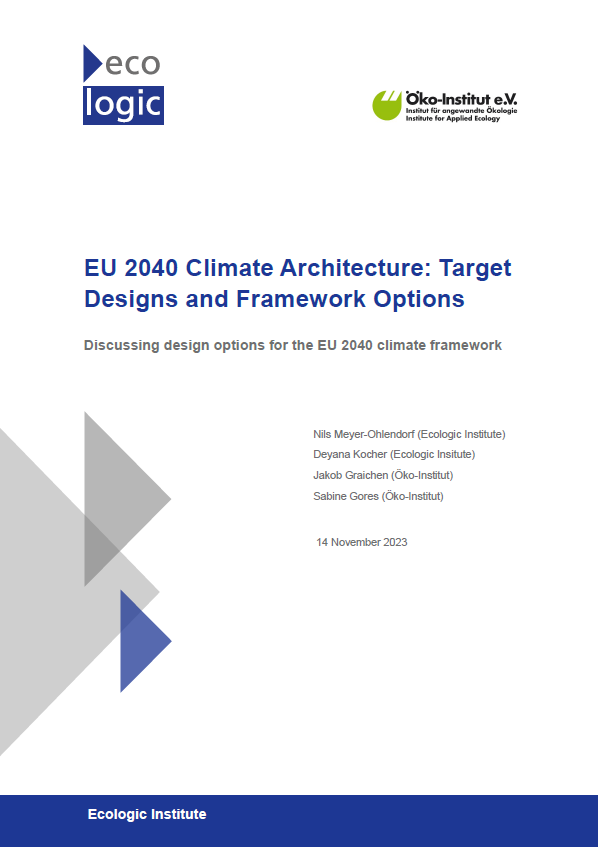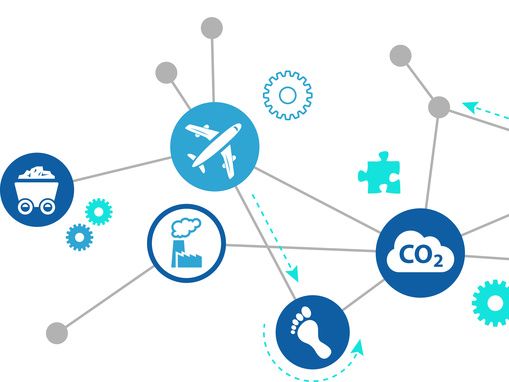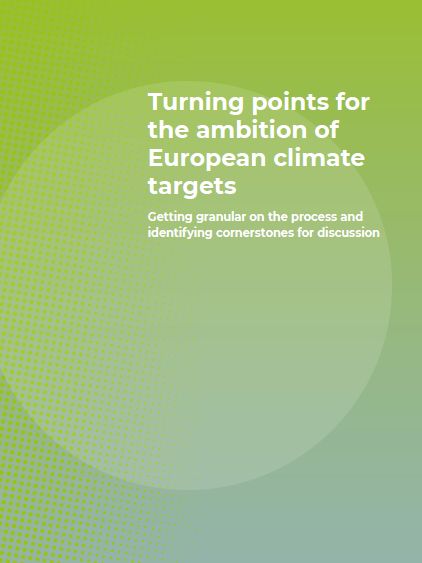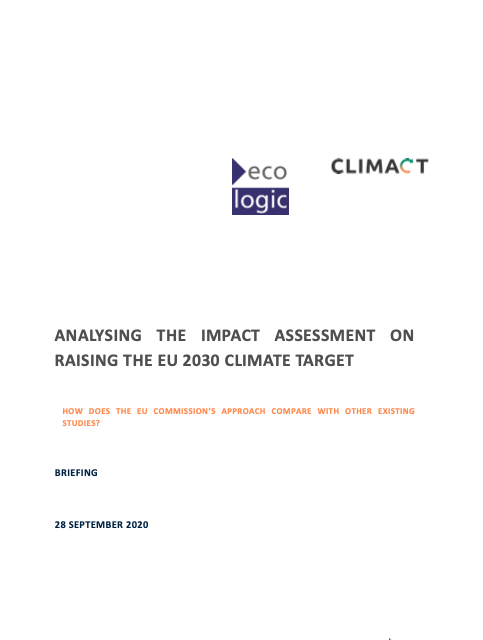Designing the EU 2040 Climate Target
Political context, level of ambition, implications for Member States and sectors
- Publication
- Citation
Meyer-Ohlendorf, Nils; Spasova, Deyana; Graichen, Jakob; Gores, Sabine (2023): Designing the EU 2040 climate target. Ecologic Institute, Berlin
In the coming years, the EU has to adopt a legally binding climate target for 2040. The European Climate Law obliges the EU to adopt such a target. With the recent report of the European Scientific Advisory Body on Climate Change (ESABCC) on a 2040 target, the political discussion has entered a new phase. The ESABCC recommends a 2040 EU climate target of minus 90–95 % and an EU emission budget of 11–14 Gt for the period of 2030 to 2050.
A new report by Ecologic Institute and the Oeko-Institut discusses the level of ambition of a 2040 EU climate target. The report analyses the implications of a 2040 climate target for Member States and sectors. It also discusses the political context in which the EU 2040 climate target will be negotiated.
- Language
-
English
- Authorship
-
Jakob Graichen (Oeko-Institut)Sabine Gores (Oeko-Institut)
- Funding
-
Federal Ministry for Economic Affairs and Climate Action (BMWK), Germany - Published by
-
Ecologic Institute, Germany Oeko-Institut (Öko-Institut e.V.), Germany - Year
- Dimension
- 42 pp.
- Project
- Project ID
- Table of contents
-
Click to show full table of contents
1 Introduction
2 European Sovereignty: The case for a strong 2040 target
2.1 Energy security and energy costs
2.2 Circular economy, climate policies and dependency on critical raw materials
2.3 Fossil fuels fund authoritarian regimes and war
2.4 Security of food supply
2.5 Migration and climate change
2.6 Energy poverty and demographic change
3 The EU’s fair share: remaining emission budgets
3.1 Remaining global emission budget
3.2 Criteria for distributing global emission budgets
3.3 Estimated EU emission budgets
4 2040 target: The level of ambition
4.1 Emission levels in 2040 in different EU-wide scenarios
4.2 Member State contributions to the 2040 target as already existing in national law and policies
4.3 The gap between 2040 target scenarios and existing national commitments
5 Sector contributions to the 2040 climate target
5.1 Energy
5.2 Industry
5.3 Transport
5.4 Buildings
5.5 Agriculture
5.6 Waste
5.7 LULUCF
5.8 Technological removals
References
Annexes
Annex A: Estimated EU emission budgets
Annex B: Scenarios for 2040 GHG emission reductions - Keywords
Analysis of Linkages between the EU Budget and Energy and Climate Targets for 2030
- Duration
-
-
- Funding
-
European Climate Foundation (ECF), International
Assessing the Impact Assessment for Raising the EU's 2030 Climate Target
- Duration
-
-
- Funding
-
European Climate Foundation (ECF), International
Combining Policy Instruments to Achieve Europe's 2050 Climate Targets (CECILIA2050)
- Duration
-
-
- Funding
-
European Commission, Directorate-General Research & Innovation (DG Research & Innovation), International
Gores, S., Fallasch, F., Siemons, A., Duwe, M., Evans, N. 2020: Turning Points for the Ambition of European Climate Targets. Getting granular on the process and identifiying cornerstones for discussion, Studie im Auftrag des Bundesministerium für Umwelt, Naturschutz und nukleare Sicherheit, Berlin: Öko Institut and Ecologic Institute.
Climact, Ecologic Institute (2020): Analysing the impact assessment on raIsing the EU 2030 climate target - How does the European Commission’s approach compare with other existing studies?
